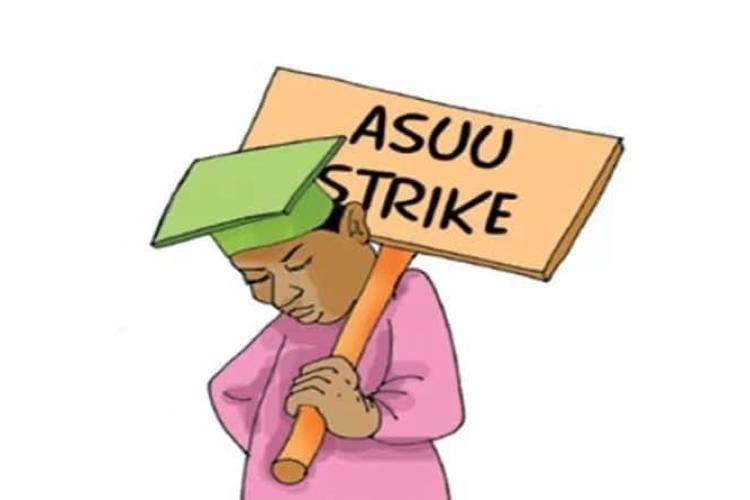The Federal Government has ordered vice chancellors of all federal universities to enforce the “no work, no pay” policy against lecturers participating in the ongoing two-week warning strike declared by the Academic Staff Union of Universities (ASUU).
In a circular issued yesterday, the Minister of Education, Dr. Tunji Alausa, directed vice chancellors to strictly apply the provisions of the Labour Laws, warning that no staff member should be paid for duties not performed during the strike.
To ensure compliance, the vice chancellors were asked to conduct a physical headcount of all academic staff, identify those who continued working, and withhold salaries of those who joined the strike. The directive, however, exempts members of the Congress of University Academics (CONUA) and the National Association of Medical and Dental Academics (NAMDA), who are not participating in the strike.
The National Universities Commission (NUC) has also been instructed to monitor compliance and submit a consolidated report to the ministry within seven days.
Alausa described the action as necessary to protect the integrity of the higher education system, urging vice chancellors to implement the directive “with urgency and responsibility.”
ASUU: “We won’t be intimidated”
Reacting, ASUU President, Chris Piwuna, dismissed the government’s directive, saying the union would not succumb to threats.
“We don’t respond to threats, and nobody can intimidate us,” Piwuna said, accusing the minister of attempting to divide academics by selectively exempting other unions.
He maintained that ASUU remains united, noting that the strike enjoys the solidarity of other tertiary institution unions, including SSANU, NASU, and the unions in polytechnics and colleges of education.
At the University of Jos, ASUU Chairperson, Prof. Jurbe Molwus, said the “no work, no pay” policy was not new, describing it as a familiar government tactic.
“They want to silence us through hardship, but we will keep demanding what is right,” Molwus stated, adding that the strike would continue until the government meets the union’s demands.
Universities record full compliance
Across the country, the strike recorded near-total compliance. Lectures, exams, and research activities were suspended in institutions such as Ahmadu Bello University (ABU) Zaria, Yobe State University, and the Federal University, Gashua.
Students expressed frustration and fear that the warning strike could evolve into a prolonged shutdown, disrupting academic calendars and delaying graduations.
At the University of Maiduguri, some students writing examinations expressed anxiety that their exams might be suspended. “We just want this issue resolved quickly,” one final-year student said.
FG insists demands have been met
The Education Minister, Dr. Alausa, maintained that the government has met all of ASUU’s demands, describing the strike as “unnecessary.”
According to him, N50 billion has been released to clear arrears of earned allowances, while N150 billion has been budgeted for the Needs Assessment Fund—N50 billion of which has already been disbursed. He also assured that outstanding promotion arrears would be addressed in the 2026 budget.
NLC threatens solidarity action
Meanwhile, the Nigeria Labour Congress (NLC) has warned that it could mobilize workers nationwide if the government fails to withdraw its “no work, no pay” order.
NLC President, Joe Ajaero, described the policy as provocative and unjust, accusing the government of deepening inequality by neglecting public education while the elite send their children abroad.
“This is not just ASUU’s struggle; it’s about saving Nigeria’s public education,” Ajaero said. “If, after this two-week warning strike, the government remains unresponsive, we will not stand idly by.”
Long-standing grievances
ASUU’s latest strike stems from the government’s failure to implement the renegotiated 2009 FGN/ASUU Agreement, address withheld salaries from the 2022 strike, and resolve issues with the Integrated Payroll and Personnel Information System (IPPIS).
The union is also demanding the payment of arrears of the 25–35% salary award, release of third-party deductions, and increased funding for university revitalization.
Lecturers say the strike is a last resort after years of broken promises. “This is not about pay alone,” one senior lecturer said. “It’s about saving the public university system from total collapse.”

Leave a Reply